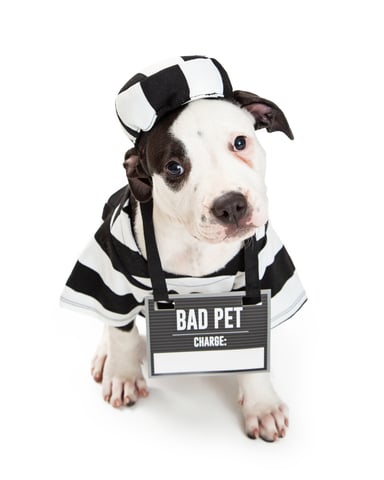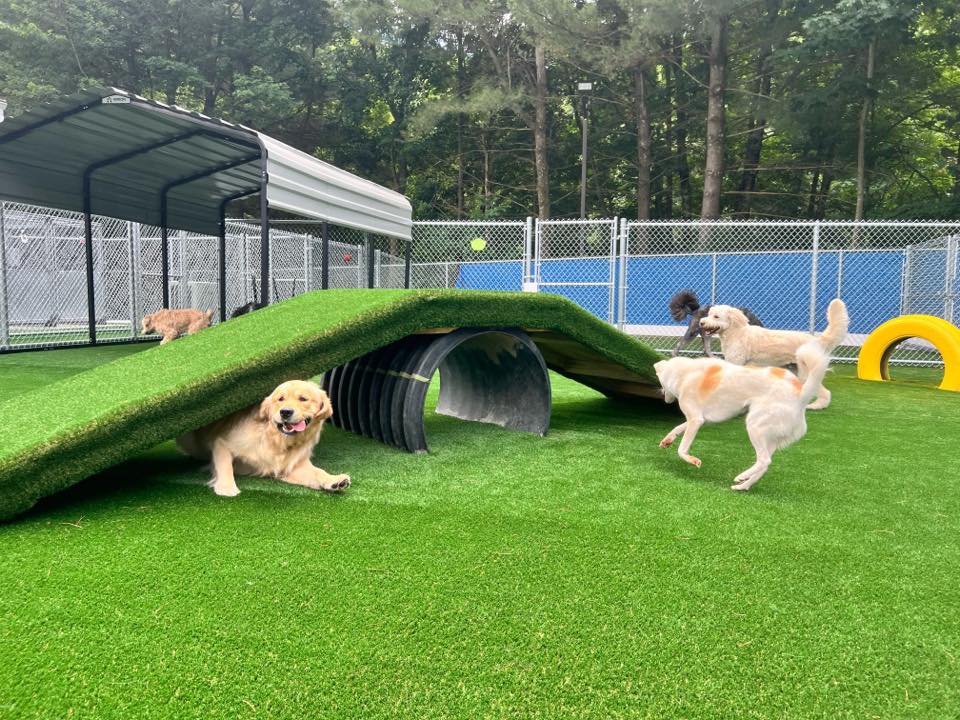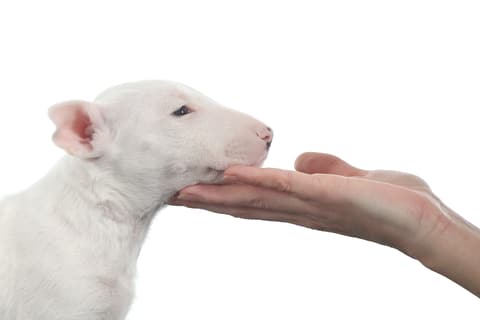Using every-day activities to reinforce polite behavior.

Have you ever thought about all the pleasures a dog derives from everyday life: Eating a meal or a treat, going for a walk, playing ball, getting attention, being stroked and petted, chasing a squirrel, romping with the kids, going outside, to the beach, for a ride in the car—and the list goes on. A dog’s daily life is full of fun, tasty, enjoyable, and pleasurable things.
Most dogs do little or nothing to earn access to these pleasures on a regular basis. Oh sure, our dogs give us pleasure, companionship and love, and they make us smile and laugh. But dogs do that simply by being there, with no effort on their part.
If you’re like most adults, you likely work to earn the money to buy the food you eat. In other words, we humans have to earn our meals. Even children are required to earn what they want when we request “please” before giving a child a cookie. But what do we ask of our dogs when we feed them? Most of us ask nothing, simply putting the food dish down for them. We ask nothing when we take him out for a romp; or pick up a ball to play; or stroke and massage and groom him.
Such generosity has two drawbacks. First, it can excuse (and even reward) pushy, obnoxious behavior. For example, if your dog is whining or pawing at you to hurry up and feed him; or if he’s jumping up on you as you carry his dish toward his feeding spot, by simply putting his food dish down, you’re unintentionally rewarding his whining, pawing or jumping up. Simply giving “it” away ignores the boundaries of polite behavior—as important for dogs as for people.
The second drawback is that giving our dogs everything in life free misses opportunities to teach (and reinforce) manners. Every activity in a dog’s day provides an opportunity for learning.
There is a simple principle of behavior developed by a behavioral psychologist David Premack. Premack’s principle is that a person will perform a less-desirable activity in order to be able to engage in a more desirable one. In “parental” terms, Premack’s principle is “eat your vegetables and you can have desert.”
Premack’s principle applies to dogs as well as to humans, and can be easily used with your dog. We have a program we use with clients whose dogs have behavioral problems. We call the program “Earn Life’s Rewards.” The concept is good for virtually all dogs, but is especially helpful with pushy, assertive dogs—a dog that may be incorrectly called “dominant.”
Earn Life Rewards is all about teaching and requesting polite, mannered behavior. Easy to implement, it can become an automatic part of your daily routine with your dog. You don’t need to set aside special “training” time. Rather you can exploit the fact that life itself is full of rewards for your dog—desirable activities that can utilize Premack’s principle. For example, your dog is standing by the door asking to go out. Before opening the door, wait for your dog to sit. The moment he does, say “yes” or “good” and open the door. The reward of going outside reinforces the polite behavior. Another opportunity is waiting for a sit before putting your dog’s food dish down, or putting on her leash and collar to go for a walk.
You might think of it as having the dog earn what he wants just as you ask a child to for “earn a cookie” by saying “please.” We take the opportunity of cookie delivery to teach a child to say “please.” And it can be just as easy to teach your dog.
Far from minding, dogs like it. Dogs are happy having a job and functions to perform. The Earn Life’s Rewards idea is good for everyone—for you and for your dog.







